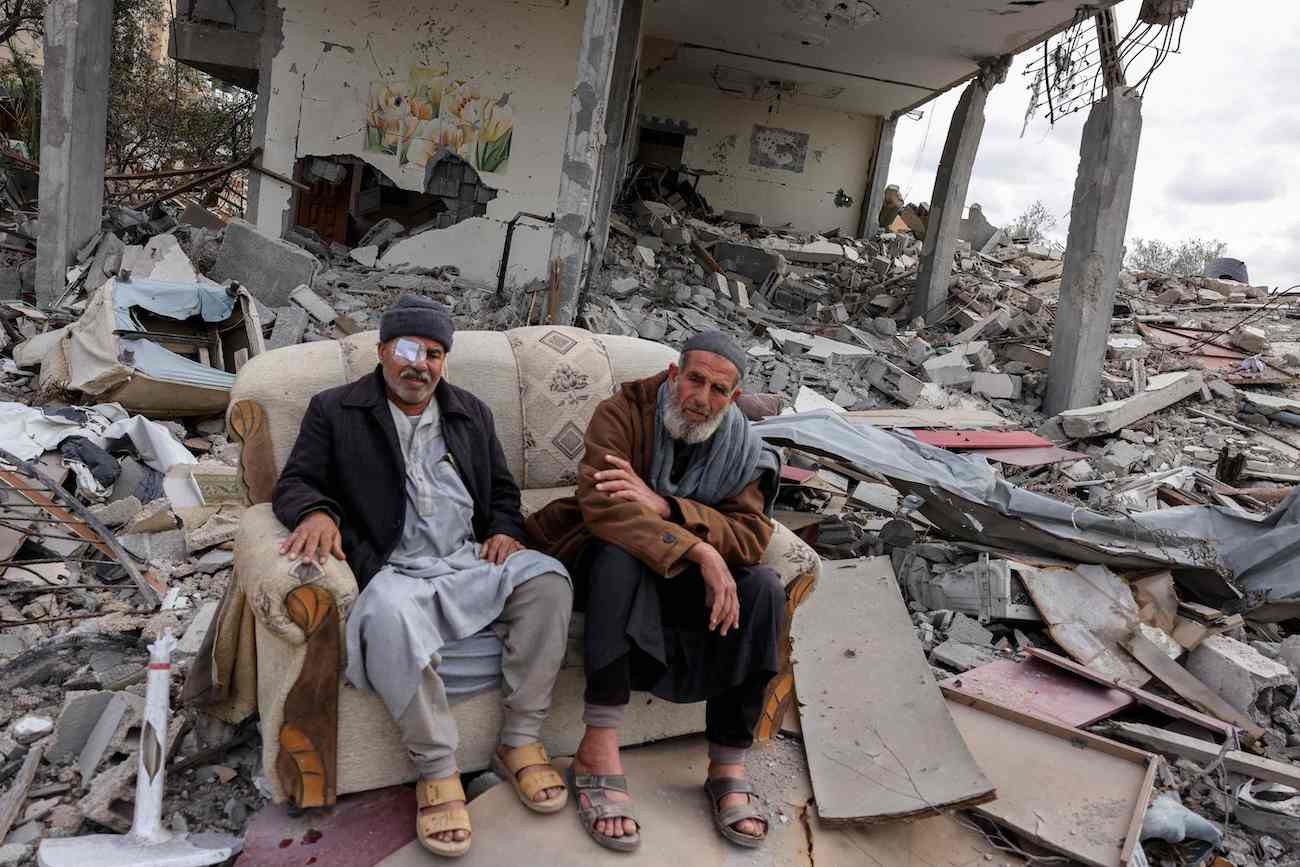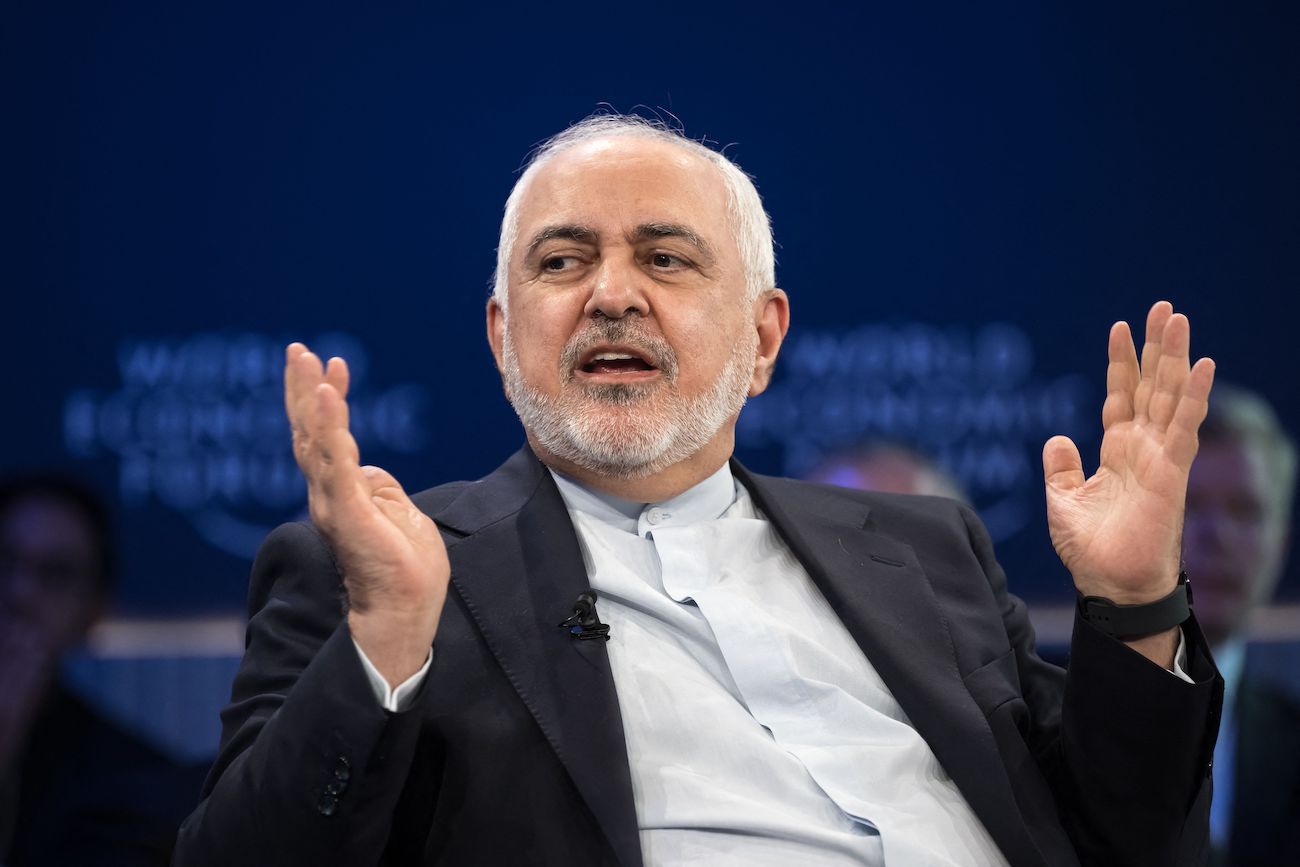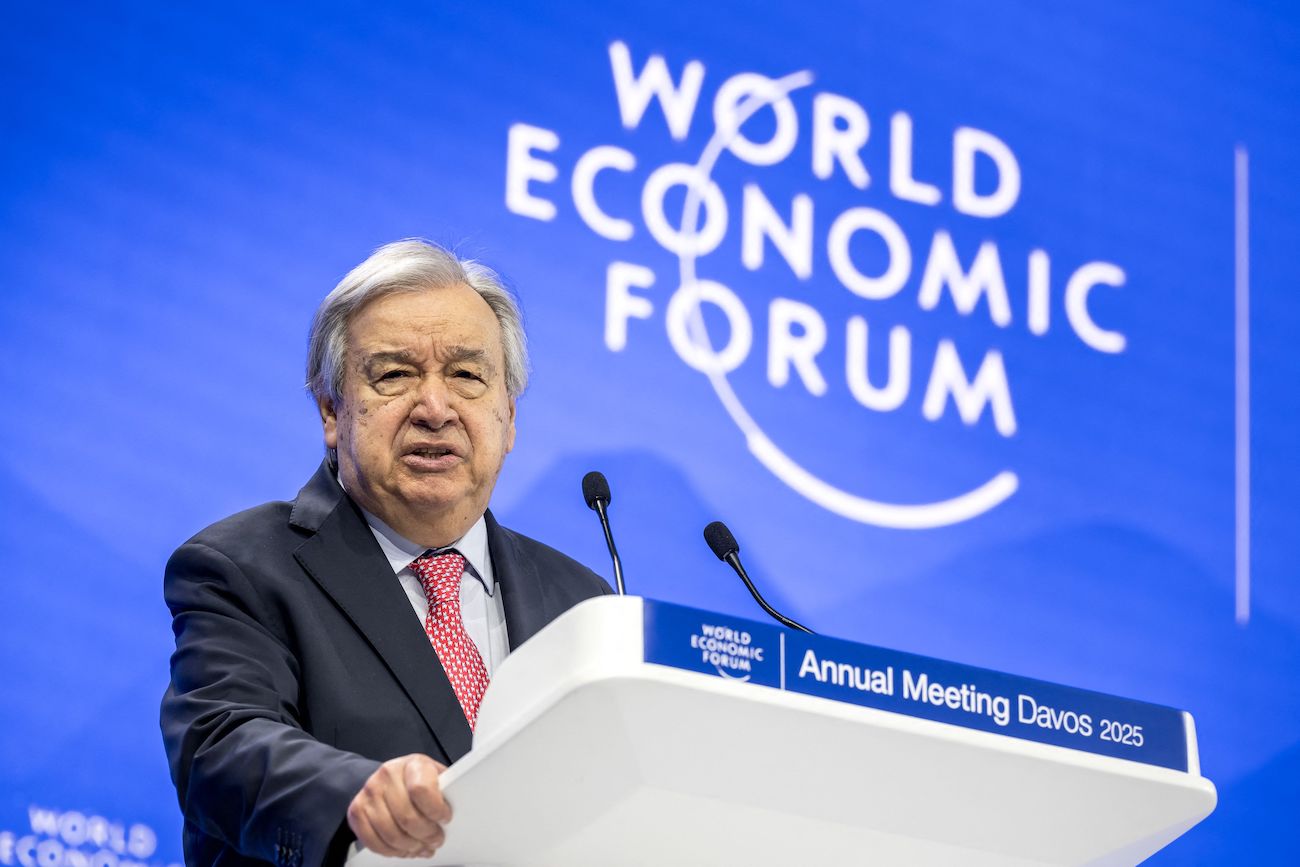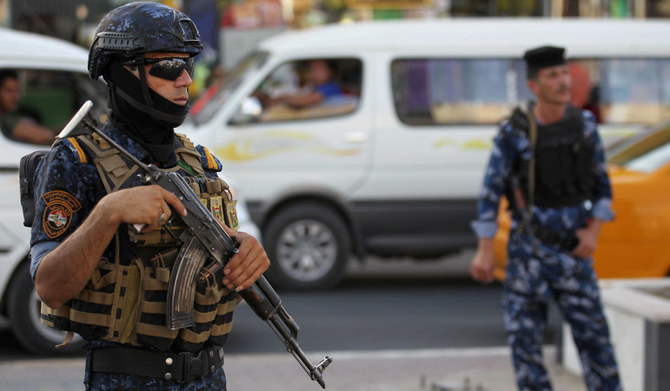COPENHAGEN: Sweden’s Foreign Ministry said officials summoned the Iraqi chargé d’affaires Friday to protest against death sentences handed down to Swedes in Iraq.
Swedish media reported in recent days that two Swedes have been sentenced to death in Iraq after being convicted of killing a member of criminal gang there. On Friday, Sweden’s news agency TT cited the foreign ministry in Stockholm’s confirmation that at least one person with a Swedish passport has received a death sentence.
“We condemn the use of the death penalty. We oppose it always, everywhere and regardless of the circumstances,” Sweden’s Foreign Minister Tobias Billström said in a statement.
He said officials conveyed Sweden’s protests at the meeting and demanded that the sentences not be enforced.
TT reported that another two Swedes have been detained for alleged involvement in the murder of a criminal in Iraq.
The killing earlier this year is believed to be linked to an internal gang war between two Swedish groups that has resulted in numerous killings and attempted murders, some occurring outside Sweden. The Foxtrot network and its rival, Rumba, have for years been involved in deadly feuds.
Sweden has grappled with gang violence for years and criminal gangs often recruit teenagers in socially disadvantaged immigrant neighborhoods to carry out hits. Swedish police recorded 109 shootings so far this year, including 14 fatal shootings. Last year, 53 people were killed and 109 were wounded in a total of 363 shootings.
Sweden summons Iraqi diplomat to protest death penalties reportedly handed to 2 Swedes
https://arab.news/zsuyc
Sweden summons Iraqi diplomat to protest death penalties reportedly handed to 2 Swedes

- Two Swedes have been sentenced to death in Iraq after being convicted of killing a member of criminal gang
- “We condemn the use of the death penalty,” Sweden’s Foreign Minister Tobias Billström said
To secure Gaza ceasefire, dealmakers overcame enemies’ deep distrust

- The deal calls for Israel and Hamas to resume talks just over a week from now, to work out the second phase. That is supposed to include the release of all remaining hostages, living and dead, and a permanent ceasefire
Inside a lavish clubhouse on Doha’s waterfront, tensions strained by months of fruitless back-and-forth weighed on negotiators as the hour neared 3 a.m.
On the first floor, a Hamas delegation whose leader had once evaded an Israeli airstrike that killed seven family members combed through the details of yet another proposal to halt the war in Gaza. On the second floor, advisers to Israel’s intelligence chief, who had vowed to hunt down those responsible for the Oct. 7, 2023, attack that ignited the war, did the same.
With Qatari, US and Egyptian mediators pushing for resolution, did the sides — such bitter enemies that they refused to speak directly to one another — at last have a deal to pause the fighting and bring dozens of Israeli hostages home?
“They were extremely suspicious toward each other. No trust at all,” said an Egyptian official involved in the negotiations, who spoke on condition of anonymity. The talks that night a week ago dragged on over disagreements about maps showing where Israel would begin withdrawing troops and its demand that Hamas provide a list of hostages who remained alive, he said.
“Both parties were looking at each word in the deal as a trap.”
By the time Qatar’s prime minister, Sheikh Mohammed bin Abdulrahman Al Thani, announced a ceasefire deal last Wednesday evening, mediators had scrambled again to defuse objections by both sides. Even then, disagreements and delays continued over the two days that followed.
But as the fighting in Gaza paused this week, three young Israeli women were released from captivity and dozens of Palestinian prisoners were freed by Israel, the agreement, however tenuous, has held.
After months of deadlock, a singular moment for dealmaking
The story of how Israel and Hamas found their way to a deal stretches back over more than a year. But the timing and unlikely partners who coalesced to push negotiations across the line help explain why it finally happened now.
“Over the course of the last week all of the stars aligned finally in a way that, after 15 months of carnage and bloodshed, negotiations came to fruition,” said Mehran Kamrava, a professor of government at Georgetown University in Qatar.
The agreement was the product of a singular political moment, with one US president preparing to hand power to another.
Both were pushing for a deal to free some 100 Israeli hostages and bring an end to a conflict that began with the killing of about 1,200 in Israel and that Palestinian health officials say has killed more than 47,000 in Gaza.
The health officials do not distinguish between civilians and militants, but say more than half of those killed were women and children.
In tiny but wealthy Qatar, the talks had a steward that positions itself as a go-between in a region on edge, one that hosts the largest US military base in the Middle East even as it provides offices for leaders of Hamas and the Taliban. Egypt, eager to ease instability that has driven an influx of Palestinians across its border and sparked attacks on sea lanes by Houthi rebels, worked to keep the talks on track.
The circumstances partnered Sheikh Mohammed with improbable allies. Then-President Joe Biden sent Brett McGurk, a veteran Middle East hand in both Republican and Democratic administrations. Donald Trump dispatched Steve Witkoff, a Bronx-born real estate billionaire with little if any diplomatic experience, but a longtime friendship with the then-president-elect.
The deal they brought together calls for continued negotiations that could be even more fraught, but with the potential to release the remaining hostages and end a war that has destroyed much of Gaza and roiled the entire region.
Pressure mounted on Israel and Hamas
In the end, negotiators got it done in a matter of days. But it followed months of deadlock over the number of Israeli hostages that would be freed, the number of Palestinian prisoners to be released and the parameters of a pullback by Israeli troops in the embattled enclave.
In late May, Biden laid out a proposed deal, which he said had come from Israel. It drew heavily on language and concepts hammered out with Qatari and Egyptian mediators, calling for a phased agreement with continued negotiation toward a “sustainable calm” – verbiage designed to satisfy both sides.
But talks had stalled even before the detonation of a bomb, attributed to Israel, in late July killed Ismail Haniyeh, the head of Hamas’ political bureau. And efforts by mediators to restart them were derailed when Israeli forces found the bodies of six hostages in a Gaza tunnel in August.
“Whoever murders hostages does not want a deal,” Israeli Prime Minister Netanyahu said.
Pressure on Hamas increased after Israeli forces killed leader Yahya Sinwar — an architect of the Oct. 7 attack — and launched a devastating offensive against Lebanon’s Hezbollah, the group’s longtime ally.
But Qatari officials, frustrated by the lack of progress, announced they were suspending mediation until both sides demonstrated willingness to negotiate.
Weeks later, Trump dispatched Witkoff, a golfing buddy whose most notable prior link to the Middle East was his $623 million sale of New York’s Park Lane Hotel to Qatar’s sovereign wealth fund in 2023.
Flying to Doha in late November, Witkoff asked mediators to lay out the problems undermining the talks, then continued on to meet officials in Israel. The talks restarted soon after, gaining ground through December.
“Witkoff and McGurk were pushing the Israelis. Qatar was pushing Hamas,” said an official briefed on the talks who spoke on condition of anonymity.
Cooperation between Biden and Trump advisers was key
Assigning credit for the progress depends on viewpoint.
The Egyptian official recounted the frustration of successfully pushing Hamas to agree to changes last summer, only to find Netanyahu imposing new conditions.
An Israeli official who spoke on condition of anonymity last week because the negotiations were ongoing said Sinwar’s death and Iran’s weakening influence in the region forced Hamas’ hand, leading to real give-and-take rather than “playing a game of negotiation.”
He and others close to the process said Trump’s rhetoric and dispatch of an envoy had injected new momentum. The Egyptian official pointed to a statement by Trump on social media that there would be “hell to pay” if the hostages were not released, saying it had pressured both Hamas and Israeli officials to get a deal done.
And mediators said the willingness of Witkoff and McGurk — representing leaders loathe to give one another credit for the deal – to partner up was critical.
“How they have handled this as a team since the election, without yet being in office, has really helped close the gaps that allowed us to reach a deal,” Majed Al Ansari, the adviser to Qatar’s prime minister and spokesperson for the Ministry of Foreign Affairs, said in a statement.
In early January, there was a breakthrough in the talks when Hamas agreed to provide a list of hostages it would release in the first phase of a deal, an official briefed on the talks said.
McGurk flew from Washington to Doha hours later. Witkoff followed at week’s end.
The following day – Saturday, January 11 – Witkoff flew to Israel, securing a meeting with Netanyahu even though it was the Jewish sabbath. McGurk called in. Netanyahu agreed to send the heads of Israeli intelligence and internal security back to Doha for negotiations.
That led to extended negotiations, most convening in the Qatari prime minister’s private office, that lasted late into the night.
At points, mediators shuttled back and forth between adversaries on different floors. At others, the chief negotiators for the two sides cycled separately into the prime minister’s office to hash out details.
“But the Hamas and Israeli delegations never crossed paths,” said the official briefed on the talks.
Ceasefire conditions debated up until the last moment
After the lead negotiators for each side left Sheikh Mohammed’s office late Tuesday, the work shifted to the waterfront club owned by the foreign affairs ministry, where “technical teams” from both sides pored over the specific language, a floor apart.
“Until late the first hours of Wednesday we were working tirelessly to resolve last-minute disputes,” said the Egyptian official involved in the negotiations.
After extended discussions focused on the buffer zone Israel is to maintain in Gaza and the names of prisoners to be released, the long night ended with an agreement seemingly at hand, said the official briefed on the talks.
But with reporters gathering Wednesday evening for an announcement, “a last-minute hiccup, last-minute requests from both sides” forced a delay, the official said.
Israel accused Hamas of trying to make changes to already agreed upon arrangements along Gaza’s border with Egypt. Hamas called the claims “nonsense.”
A senior US official involved in the talks said Hamas negotiators made several last-minute demands, but “we held very firm.”
After calling the Hamas negotiators into his office, with the media and the world still anxiously waiting, the Qatari prime minister met separately with the Israelis and US envoys. Finally, three hours behind schedule, Sheikh Mohammed stepped to a lectern to announce the parties had reached an agreement.
Even then, negotiations resumed the following day to wrangle with questions about final implementation of the deal and mechanisms for doing so. By the time the talks ended, it was 4 a.m.
Hours later, Israeli President Isaac Herzog voiced his hope that the deal would bring a national moment of goodwill, healing and rebuilding.
But no one can say how long it will last.
The deal calls for Israel and Hamas to resume talks just over a week from now, to work out the second phase. That is supposed to include the release of all remaining hostages, living and dead, and a permanent ceasefire. But getting there, observers say, will likely be even tougher.
‘We need Syria to be a place of peace and development,’ Foreign Minister Al-Shibani tells WEF

- Syrian FM Al-Shibani calls for sanctions relief and new Gulf partnerships to help aid recovery
- Cites Saudi Arabia’s Vision 2030 as an inspiration for rebuilding Syria after gruelling civil war
DAVOS: Saudi Vision 2030 is an inspiration for Syria, which needs to become a place of peace and development, Syria’s Foreign Minister Asaad Hassan Al-Shibani told the World Economic Forum on Wednesday.
“Where do we see inspiration for the new Syria? We have the Vision 2030 of Saudi Arabia,” Al-Shaibani said during a conversation with former UK prime minister Tony Blair at the annual meeting of the World Economic Forum in Davos.
“We need Syria to be a place of peace, to be a place of development, a place free of war.”
Having become foreign minister following the overthrow of the Bashar Assad regime on Dec. 8 last year, Al-Shaibani said the lifting of economic sanctions imposed on the former regime would be “key” to establishing stability in his country.
“Removing economic sanctions is the key for the stability of Syria,” he said, adding that they were imposed for the benefit of Syrians, but are now “against the Syrian people.”

“The reason for these sanctions is now in Moscow,” he said, referring to Assad, who fled to the Russian capital. A new government led by the victorious Hayat Tahrir Al-Sham has since taken Assad’s place, but still does not have full control over the nation’s territory.
“The Syrian people shouldn’t be punished” now that the deposed ruler was no longer in power, said Al-Shaibani. “We inherited a collapsed state from the Assad regime, there is no economic system,” he added, saying he hoped “the economy in the future will be open.”
Al-Shaibani said a committee had been formed to study economic conditions and infrastructure in Syria and would focus on privatization efforts, including of oil, cotton, and factories, while exploring “public-private partnerships to encourage investment into airports, railways and roads.”
Al-Shibani also confirmed that the country will open its economy to foreign investments, adding that Damascus was working on partnerships with Gulf states in the energy sector.
The new Syrian government has been especially keen to reach out to the Gulf states to reestablish ties, which have long suffered as a result of the Assad regime’s support for the narcotics trade.
“We chose to visit the Gulf countries, because we wanted to fix the relations with these countries, where Assad had made a lot of problems for them,” Al-Shibani said.

“(The Assad regime) used harsh language against them, exported Captagon there, these are important countries to the region. But Syria should also take its role in the region, and they can help us with that.”
Al-Shibani was not the only Middle Eastern voice at Davos on Wednesday. Iran’s vice-president for strategic affairs, Javad Zarif, also shared his reflections on the regional situation in the wake of Israel’s ceasefires with Hamas and Hezbollah.
Speaking to CNN’s Fareed Zakaria, Zarif said: “The resistance will stay as long as the occupation stays, as long as repression stays. Resistance to Israel, to Israeli occupation, to apartheid, to genocide, existed before the Iranian revolution.”
Zarif said Hamas still exists in Gaza and that Israeli Prime Minister Benjamin Netanyahu did not achieve his goal of destroying the Palestinian militant group during the 15-month war in the enclave.
“Hamas is still there. Israel had to come to a temporary ceasefire. I hope it will be permanent, for the sake of 50,000 people who were massacred by Israel, so that there won’t be another 50,000, but resistance is not dead,” said Zarif.
“I can tell you that the wish for the resistance to go away has been based on a misrepresentation, a framing by Israel, that this is not an Israeli-Palestinian issue, but an Israeli-Iranian issue.”
Zarif said the decades-old conflict can only be ended by resolving the Palestinian question.

“If you want to resolve the problem of Palestine, you should not look at Iran,” he said. “You should look at the Palestinian issue.
“As long as the Palestinian issue is there, the struggle will be there, the resistance will be there, and there will be support from the international community, including from Arab allies of the US.”
Speaking about US President Donald Trump, Zarif said he hoped “a ‘Trump 2’ will be more serious, more focused, more realistic” when dealing with Iran.
In 2018, during his first term, Trump withdrew from the 2015 nuclear deal negotiated by his predecessor Barack Obama, and re-imposed sanctions on Tehran as part of his “maximum pressure” policy against the regime.
Tehran responded by breaching the deal in several ways, including by accelerating its uranium enrichment program.
Trump has vowed to return to the policy he pursued in his previous term that sought to use economic pressure to force Iran to negotiate a deal on its nuclear program, ballistic missiles, and regional activities, including its support for proxy militias.

Zarif added that Iran has good relations with Saudi Arabia and the UAE and that he has proposed a new arrangement in the region that is based on amity.
“I have proposed in an article I recently wrote in The Economist, after my Foreign Affairs article, that we should have a new arrangement in this region,” he said.
“I call it MWADA: Muslim, West Asia Dialog Association. In Arabic, ‘mwada’ means ‘amity,’ and the title in The Economist was ‘Amity instead of enmity.’ Let’s do that.”
In his own address earlier in the day, UN Secretary-General Antonio Guterres lamented the recent rash of conflicts in the Middle East.
“We see a multiplication of conflicts, some of which are leading to a reshaping of different regions of the world — not least the Middle East,” he told the annual meeting.
He did, however, highlight recent progress, including the ceasefire deal between Israel and Hamas, which has already resulted in the exchange of several prisoners and hostages.
“There is, finally, a measure of hope when the ceasefire and hostage release deal in Gaza takes place — and we are working to surge up desperately needed humanitarian aid,” Guterres said.

He also lauded the recent ceasefire between Israel and the Iran-backed Hezbollah militia in Lebanon and the election of a new Lebanese president and prime minister, potentially ending years of political deadlock.
“I was also just in Lebanon where a cessation of hostilities is holding, and a new government is taking shape after two years of stalemate,” he said.
In relation to Syria, Guterres said there was still a danger of further disorder unless the victorious HTS formed an inclusive administration that could work with the international community.
“We still have a strong risk of fragmentation and of extremism in at least parts of the Syrian territory,” he said.
“It is in the interest of us all to engage to make things move in the direction of an inclusive form of governance and I think some gesture must be made in relation to the sanctions.”
Yemeni migrant found dead on French channel beach: official

- “It is a young man aged around 20 of Yemeni nationality,” the regional prefecture told AFP.
- Bodies have been found washed up repeatedly on the beaches around Calais in recent months
SANGATTE, France: French officials said Wednesday the body of a young man from Yemen had been found on a beach in northern France from where many migrants seek to cross the channel in small boats to England.
The body was not far from the water on the sandy beach in Sangatte outside the northern port of Calais, surrounded by about 10 police officers, an AFP photographer saw.
“It is a young man aged around 20 of Yemeni nationality,” the regional prefecture told AFP.
Bodies have been found washed up repeatedly on the beaches around Calais in recent months. The small boats used by migrants to cross the Channel often capsize or suffer from chaotic embarkations during which some passengers are left in the water.
After a record year for deaths in the Channel, clandestine crossings have continued in the middle of winter, despite sometimes freezing temperatures.
Fifty-nine migrants aboard a boat in difficulty were rescued Tuesday at sea in French waters, local officials said.
At least 77 migrants died in 2024 while trying to reach England on board small boats, a record since the start of this type of crossing in 2018.
On January 11, a 19-year-old Syrian died during an attempted crossing, “probably crushed” by other migrants during departure, according to the authorities.
Both London and Paris have vowed to crack down on the people smugglers who are paid sometimes thousands of euros by migrants to organize the crossing to England.
But the issue has also repeatedly caused tensions between the French and British governments. Paris has claimed that London’s lax enforcement of employment rules attracts migrants.
There have been high-profile arrests of people smugglers, but activists say the traffickers are now trying to pack more people into the small boats, making the crossings even more dangerous.
Israeli army builds wall on Blue Line, reinstalls border cameras

- Israeli army is using the remaining time in the ceasefire deal with Hezbollah to establish control over the Lebanese border area
- European Council approves $62m aid package for Lebanese Army ‘to carry out its sensitive mission’
BEIRUT: An Israeli force on Wednesday advanced into the Lebanese town of Taybeh, conducted extensive searches in the area up to Adchit Al-Qusayr and set fire to several homes.
Separately, an Israeli drone struck an area between Wadi Khansa and Al-Majidiya in the Hasbaya district.
The Israeli army is using the remaining time in the ceasefire deal with Hezbollah to establish control over the Lebanese border area.
A security source reported that the Israeli army reinstalled surveillance cameras and listening devices along the border.
The official National News Agency reported that the Israeli army “completed the construction of the concrete separation wall along the Blue Line from Yarin to Dahira.”
As the Lebanese army continues to establish positions in areas vacated by the Israeli army and prepares to enter the town of Hanine in the Bint Jbeil district, a number of residents from the towns of Al-Bayyadah, Shamaa, Alma Al-Shaab and Naqoura in the western sector were permitted to visit their hometowns.
Activists on social media circulated statements urging local populations to “prepare for Sunday, the date by which, according to the ceasefire agreement, the Israeli withdrawal from the border area should have occurred, allowing people to return to their towns.”
However, the Israeli army has continued to prohibit locals from entering the towns, using gunfire as a warning.
A statement issued to residents of Khiam urged caution and advised against hasty returns, “pending an official announcement from the relevant authorities to assess the security situation, as well as from the Lebanese Army, which is expected to clarify the situation on Saturday evening and determine whether a safe return is feasible.”
The statement said: “We are dealing with a treacherous enemy. Do not grant them the opportunity for betrayal, aggression, murder, bombardment and destruction once again.”
In support of the Lebanese Army, the European Council approved on Wednesday a third aid measure under the European Peace Facility, amounting to €60 million ($62 million) for the army.
The measure, according to a statement, “contributes to enhancing the capabilities of the Lebanese army to enable it — in line with Resolution 1701 — to redeploy and secure and maintain stability in the South Litani sector.
“This contributes to protecting the civilian population in the area, and works to enhance the operational capabilities and effectiveness of the Lebanese army, to contribute to national and regional security, thus allowing displaced civilians on both sides to return to their homes.”
Kaja Kallas, EU high representative for foreign affairs and security policy, said: “This new assistance represents a significant increase in the EU’s support to the Lebanese Armed Forces within the framework of the European Peace Facility, at a crucial stage in the implementation of the ceasefire agreement between Lebanon and Israel.
“The Lebanese Armed Forces are essential for regional and local stability, and deserve our full support in carrying out their sensitive mission. The EU and its member states remain strongly committed to supporting Lebanese state institutions and renewing the EU-Lebanon partnership.”
The resolution affirmed “the EU’s commitment to supporting the Lebanese Armed Forces’ capacity to redeploy in the South Litani sector, particularly following the 60-day ceasefire agreement.
“The Lebanese Armed Forces’ plan to redeploy in the South Litani sector is essential to accompany international efforts to achieve a permanent ceasefire and implement resolution 1701,” it said.
“The Lebanese Armed Forces is the main guarantor, alongside UNIFIL, to create the necessary security conditions to restore stability and security for the population on both sides of the border.”
Meanwhile, Sheikh Mohammed Khalil Hamadeh, a Hezbollah official in Western Bekaa, was shot in front of his home by unknown assailants on Tuesday evening. He was hit by six bullets and died in hospital.
It was the first assassination in Lebanese territory since a ceasefire agreement between Hezbollah and Israel went into effect 57 days ago.
An investigation has been launched to identify the perpetrators and the motives of the assassination, especially as Sheikh Hamadeh was a well-known figure in the region.
In a statement, Hezbollah mourned Hamadeh, describing him as “a leader and a warrior, who was martyred.”
Security information said that the gunmen who assassinated him were “driving a civilian car with tinted windows.”
Bekaa MP Ghassan Skaf did not rule out the potential involvement of Israeli spy agency Mossad, “which operates without being bound by any truce.”
He said: “The last war proved that the number of agents inside Lebanon, especially within the supportive environment of Hezbollah, was greater than even the party itself expected. Therefore, even if Israel were to withdraw completely from Lebanon, it would not halt its policy of assassinations.”
In another development, Layal Alekhtiar, Al Arabiya channel’s anchor, landed in Beirut on Wednesday and was accompanied by security forces from the airport to the Justice Palace in Beirut.
A search and arrest warrant was issued against her in November 2023 by the Lebanese Military Public Prosecution.
The warrant followed an inquiry initiated at the behest of individuals close to Hezbollah, following Alekhtiar’s live interview with Israeli army spokesman Avichay Adraee on Al Arabiya.
Lebanese law forbids interactions with Israelis.
A Lebanese security source said: “Alekhtiar was immediately referred to the first investigative judge in Beirut Fadi Sawan at the Justice Palace. Following the interrogation, Alekhtiar was released on bail for 50 million Lebanese pounds ($558).”
Two months after Hezbollah opened a front to support Hamas, Alekhtiar sparked outrage among Hezbollah supporters when she interviewed Adraee on Al Arabiya and addressed him as “ustaz” (mister) and thanked him as “the Israeli army spokesman.”
Alekhtiar had described the complaint against her on social media as “a blatant political persecution in the form of judicial repression,” adding that “this has nothing to do with truth and justice.”
She addressed those who filed the complaint, saying: “They are the ones who plundered the state, bankrupted the people, and gave up the nation’s sovereignty and wealth. They are now covering up their crimes with fabrications to suppress freedoms.”
She added: “You will never affect my freedom, my dignity and my convictions no matter what you do.”
Greek authorities say more than 170 migrants picked up as arrivals from Libya increase

- The migrants said they had set sail from Tobruk in Libya and had been heading to Greece
- Greece has been on one of the preferred routes into the European Union for people fleeing war and poverty in the Middle East
ATHENS: Greek authorities say more than 170 migrants have been picked up from rickety boats in the past three days with most found off the southern tip of the country in a route that appears to be increasingly used by traffickers.
Greece’s coast guard said Wednesday that a passing Philippines-flagged tanker had rescued 29 people found on a boat 65 nautical miles (120 kilometers, 75 miles) south of the southern island of Crete.
Another 45 people were rescued overnight by a Marshall Islands-flagged cargo ship 42 nautical miles (78 kilometers, 49 miles) south of the tiny island of Gavdos.
A patrol boat on Tuesday came across a speedboat carrying migrants near the eastern island of Tilos, with a chase resulting in the speedboat driver running the vessel aground on a beach, the coast guard said. A foot patrol later located a total of 31 people, including seven children and four women, while authorities arrested a 37-year-old Moldovan national as the alleged driver.
Another 68 people were located in two separate cases in Crete and Gavdos Monday: 19 men and one boy found just having disembarked from on a wooden boat on the southern coast of Crete, and another 48 people, all men, found on Gavdos. In both cases, the migrants said they had set sail from Tobruk in Libya and had been heading to Greece.
For decades Greece has been on one of the preferred routes into the European Union for people fleeing war and poverty in the Middle East, Africa and Asia, and has seen a spike in arrivals from neighboring Turkiye and the Libyan coast over the past year. In 2024, the country recorded more than 60,000 arrivals — the vast majority by sea — compared to just over 48,000 the previous year.
While most people head to eastern Greek islands from the nearby Turkish coast, many are now opting for the perilous 300-kilometer (200-mile) journey from the Libyan coast to the islands of Crete and Gavdos, officials have said.






















